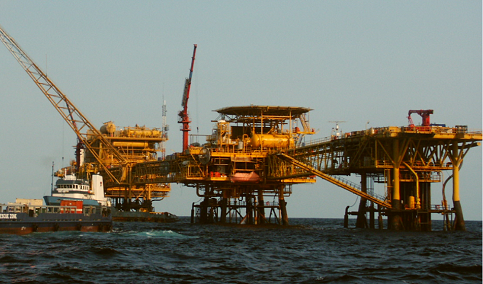
Who would be an economist?
At an event in Aberdeen on 8 October 2015 a senior economist for the Bank of Scotland boldly predicted that by the end of 2015 the price of a barrel of Brent crude would hit the giddy heights of $60. He was not alone in stating such views.
Alas, as we approach the close of the year, we have seen Brent crude slump to $38 a barrel, a mere 37% shy of the above predicted price.
In addition, $240billion has been wiped off oil company values in December alone and job losses keep increasing at an alarming rate with the Wood Group, for example, shedding over 1000 jobs since June.
Does North Sea Oil have a future?
The obvious question on everyone’s mind, apart from probing questions relating to banks and economists, must be whether North Sea oil has a future.
Will 2016 witness merely the continuance of the practice of North Sea operators to maximise production at minimum cost from currently producing wells pending a decision by them to enter into decommissioning mode?
There is an incentive for them to do so as it gives those companies some return on their investment and does not put new capital investment at risk; these returns include tax rebates in most cases as the oil is being produced at an accounting loss.
Arguably such activity also meets the Oil and Gas Authority’s objectives of maximising economic return from the North Sea. Or does it?
Does it make any kind of economic sense to keep producing oil when prices are at rock bottom values?
Why should UK taxpayers subsidise loss-making activities? In addition, producing oil at minimum costs has resulted in well over 65,000 jobs related to North Sea activity being lost in the past fourteen months.
The adverse economic impact on the North East of Scotland in particular will start to hit hard as businesses collapse and oil migrants relocate to places where oil is cheaper to produce.
House prices have so far been holding firm in the face of such adversity but unless oil prices rise quickly and strongly the spectre of mortgage holders staring into the abyss of negative equity is looming fast.
The outcome of the large climate change gathering of world leaders in Paris appears clear. Worldwide, setting aside the views of the wise populace of Texas, the tide of public opinion as reflected by the leaders of nations has swung against fossil fuels having any kind of a long-term future. Is the game up for North Sea oil?
The way forward
Not necessarily is the answer. We believe, however, that a new approach to achieving the holy grail of maximising economic return from the North Sea is required.
Decimating jobs annually and producing oil at a loss just doesn’t cut the mustard.
The long game must be played. Oil companies and the UK Exchequer have reaped fabulous returns from the UK’s natural resources over the past forty years.
In collaboration, they need to put a large proportion of that wealth back into protecting our North Sea assets. Oil companies are wealthy enough not to have to rely on handouts.
The focus now should be on incentivising exploration activity that identifies where future viable reserves of oil and gas exist around the coast of the UK. When oil prices eventually rise, which they will despite the climate change clamour for restricting fossil fuel use, the UK’s oil industry must be in a position to respond accordingly.
Maximising economic return needs careful analysis. Construing it as maximising current return for oil companies is the wrong approach. Jobs and skills must be preserved.
The UK government keeps reminding us of our wealth. Let’s see real investment in the future of our oil industry by refocusing activity away from loss making production and into fully identifying our future wealth-making oil fields.
Short-term pain for the Chancellor and for oil companies can reap enormous future returns. Let’s keep our acquaintance with oil going in 2016 and for many decades to come!
Alex Russell and Peter Strachan are Professors at Robert Gordon University.
Recommended for you
